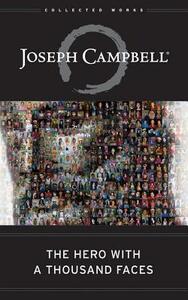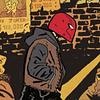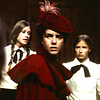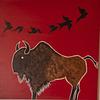Take a photo of a barcode or cover
We are all heroes in our own narratives, as there is always a hint of myth sprinkled in everyone's journey through life.
Iconic. Published in 1949, and still every bit as relevant. Not an easy read, but well worth the effort.
Actually my second time writing it, but I feel like I got a lot more out of it this time than I did in high school. It's still quite a dense book and at times I find inaccessible, but Campbell's ideas are still compelling so many years later
slow-paced
I expected this book to be an explanation of the stages and tropes found in mythology and folklore. however, it turned out to be a mix of that, philosophy, and psychology, especially psychoanalysis. The explanations, especially those regarding philosophy, are a bit difficult, though maybe it's because of my lack of knowledge in said subject. For those who are only interested in the stages and tropes, reading the prologue and the first part, the adventure of the hero, is sufficient.
The final chapter on "Myth & Society" = five glorious, I-underlined-every-other-sentence stars—worth the price of admission alone.
The rest of the book is a bit haphazard in terms of the path it charts through its points, but still full of wisdom, and not as rigid re: the patterns it detects as some of the formulae that have been derived from it. Campbell here does something my professors often chide me about—he frequently offers up quotes/passages from other sources as if they are mic drops that need no elucidation, i.e.: "See?! I rest my case." Yeah, well, I THINK I see, but can we take a moment to make sure before you go marching off to the next point, my man? Still, the book is so inspired and passionately articulated I can't fault Campbell for the assumptive nature of some of his argumentation. I do the same thing when I'm really excited about a topic!
I've heard some of his later work is much more organized and coherent, and this does make me want to read more. Because if nothing else, Campbell's insistence that the human psyche needs myth and story like the body needs food and water is a thesis I will back all day, every day.
The rest of the book is a bit haphazard in terms of the path it charts through its points, but still full of wisdom, and not as rigid re: the patterns it detects as some of the formulae that have been derived from it. Campbell here does something my professors often chide me about—he frequently offers up quotes/passages from other sources as if they are mic drops that need no elucidation, i.e.: "See?! I rest my case." Yeah, well, I THINK I see, but can we take a moment to make sure before you go marching off to the next point, my man? Still, the book is so inspired and passionately articulated I can't fault Campbell for the assumptive nature of some of his argumentation. I do the same thing when I'm really excited about a topic!
I've heard some of his later work is much more organized and coherent, and this does make me want to read more. Because if nothing else, Campbell's insistence that the human psyche needs myth and story like the body needs food and water is a thesis I will back all day, every day.
"Truth is one," we read in the Vedas; "the sages call it by many names." A single song is being inflected through all the colorations of the human choir. General propaganda for one or another of the local solutions, therefore, is superfluous—or much rather, a menace. The way to become human is to learn to recognize the lineaments of God in all of the wonderful modulations of the [faces] of [people].
More of a 3+ to 4- for the rating. The beginning is pretty heavy on Freud and Jung, but then the mythology gets cooking. His ideas are widely available in a more easily digestible format online, and there are a few YouTube videos on his work worth the time. I also listened to an audiobook version of this, also helpful.
This is a must-read for anyone telling stories.
informative
reflective
medium-paced
Will definitely have to return to this a few times
I thought this book was going to be "here's the monomyth and it's present in everything", but it's more, "a monomyth emerges from all these different stories, but not all of them display it equally", which is a much more valuable persepctive. I learned a lot, both from the myths I knew from before, and from the ones that were novel to me. If anything, this book will inspire you to seek out more mythologies.
Mythology has been interpreted by the modern intellect as a primitive, fumbling effort to explain the world of nature (Frazer); as a production of poetical fantasy from prehistoric times, misunderstood by succeeding age (Müller); as a repository of allegorical instruction, to shape the individual to his group (Durkheim); as a group dream, symptomatic of archetypal urges within the depths of the human psyche (Jung); as the traditional vehicle of man’s profoundest metaphysical insights (Coomaraswamy); and as God’s Revelation to His children (the Church). Mythology is all of these.






